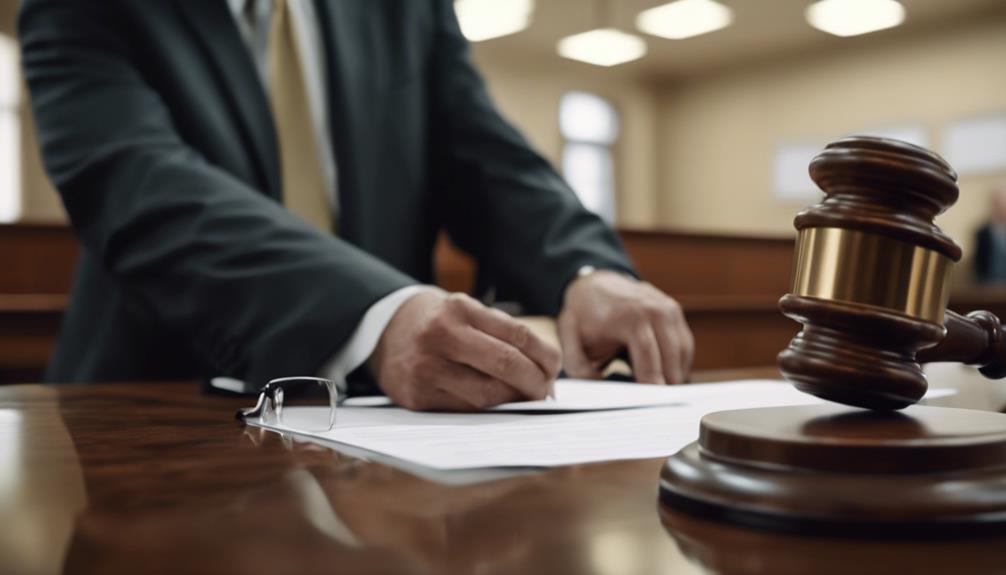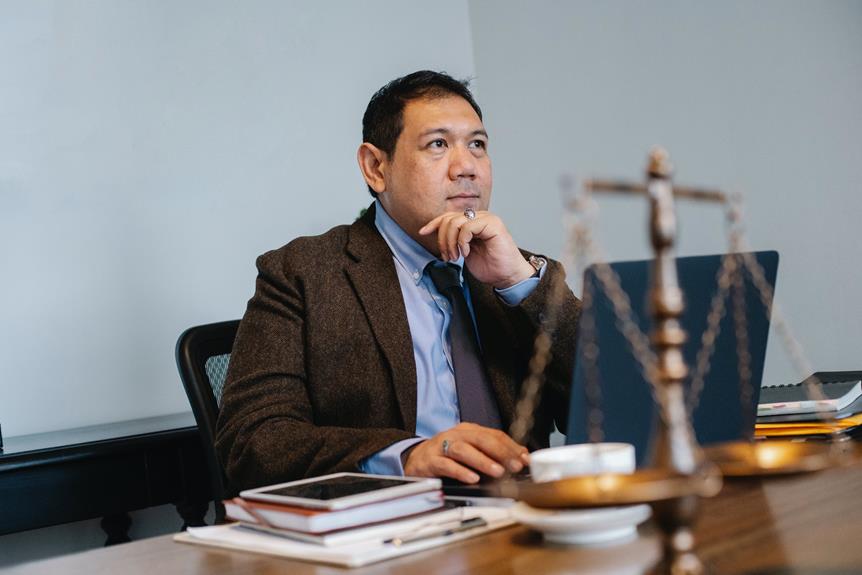Navigating the intricacies of a legal dispute involves a series of carefully orchestrated steps that can significantly impact the outcome of a case. From the initial initiation of the lawsuit to the post-trial phase, each stage plays a crucial role in shaping the final verdict.
Understanding the key steps in a lawsuit is essential for anyone involved in the legal process, whether as a plaintiff, defendant, or even a curious observer. Let's explore the journey through the various stages of a lawsuit and unravel the complexities that unfold along the way.
Initiating the Lawsuit

To initiate a lawsuit, the plaintiff must file a formal legal complaint with the appropriate court. This filing paperwork outlines the plaintiff's allegations against the defendant and the legal basis for the lawsuit. Once the complaint is filed, the court issues a summons, which must be served to the defendant. Serving the defendant ensures that they are made aware of the lawsuit and have the opportunity to respond.
Filing the necessary paperwork is a crucial step in the litigation process. The complaint sets the framework for the entire case, detailing the claims and relief sought by the plaintiff. It is essential to ensure that the complaint is drafted accurately, including all relevant facts and legal theories, to support the plaintiff's case effectively.
Moreover, serving the defendant is essential for providing them with notice of the legal action being taken against them. Proper service of the summons and complaint is required to give the defendant a fair chance to respond and defend themselves in court. Failure to serve the defendant correctly can result in delays or dismissal of the case.
Discovery Process
The discovery process in a lawsuit involves the exchange of information and evidence between the parties to uncover facts relevant to the case. This phase allows each party to understand the strengths and weaknesses of their case and the case of their opponents.
One crucial aspect of the discovery process is evidence collection. Attorneys gather and analyze documents, records, and other materials that can support their arguments. Moreover, they may employ deposition strategies, where witnesses provide sworn testimony outside of the courtroom. Depositions can help in understanding the other party's position, evaluating witness credibility, and gathering information that may not be evident from documents alone.
Effective deposition strategies can significantly impact the outcome of a case by revealing key details or inconsistencies in the opponent's testimony. Overall, the discovery process is an essential step in any lawsuit as it sets the foundation for the arguments and evidence presented during trial.
Pretrial Motions

A critical aspect of the legal process before a trial commences involves the filing and consideration of pretrial motions. Pretrial motions are formal requests made to the court by either party involved in a lawsuit. These motions are crucial as they set the groundwork for how the trial will proceed.
Motion filing is the initial step in this process, where either the plaintiff or the defendant submits a written request to the court, outlining the relief or action they are seeking. Common pretrial motions include motions to dismiss, motions for summary judgment, motions to suppress evidence, and motions to compel discovery.
Legal arguments play a significant role in pretrial motions. Attorneys for both sides present their legal reasoning and precedents to support their motion. The judge then reviews these arguments and makes a ruling based on the law and facts presented. Pretrial motions help streamline the trial process by addressing key legal issues before the trial begins, ultimately ensuring a more efficient and effective legal proceeding.
Trial Proceedings
After pretrial motions have been addressed and decided upon, the legal process progresses into trial proceedings to adjudicate the dispute between the parties involved. One crucial aspect of trial proceedings is the jury selection process. During this phase, potential jurors are questioned by both the defense and prosecution to ensure they can be impartial and fair in their judgment. Once the jury is selected, the trial moves into the presentation of evidence.
Evidence presentation is a fundamental part of trial proceedings. This is where each party has the opportunity to present their case through witness testimonies, documents, and other forms of evidence. Both sides have the chance to cross-examine witnesses and challenge the admissibility of evidence presented by the opposing party. The goal of evidence presentation is to provide the fact-finder, whether it be the judge or jury, with all the necessary information to make an informed decision based on the facts of the case.
Post-Trial Phase

Upon the conclusion of the trial proceedings, the post-trial phase initiates to address any remaining legal matters and finalize the case outcome. In this crucial phase, parties may explore various options to determine the next course of action. One common step during the post-trial phase is considering appeal options. If a party is dissatisfied with the trial court's decision, they may choose to appeal to a higher court to review the case for legal errors or issues that may have impacted the outcome.
Additionally, the post-trial phase often involves settlement negotiations. Parties may engage in discussions to reach a mutually agreeable resolution without the need for further litigation. Settlement negotiations can help parties avoid the uncertainties and costs associated with prolonged legal proceedings. By negotiating a settlement, parties can potentially resolve the case more efficiently and with greater control over the final outcome. Overall, the post-trial phase plays a critical role in shaping the ultimate resolution of a case, offering parties opportunities to pursue different paths towards reaching a final conclusion.
Frequently Asked Questions
Can a Lawsuit Be Initiated Without Hiring a Lawyer?
Yes, a lawsuit can be initiated without hiring a lawyer through pro se representation. Individuals can self-file in small claims court or seek legal aid for guidance. It's crucial to thoroughly understand the legal process and requirements.
How Long Does the Discovery Process Typically Take in a Complex Lawsuit?
The discovery process in a complex lawsuit can vary depending on the case's specifics. It typically takes several months to a year to complete, considering the challenges involved in gathering and exchanging relevant information crucial for developing a sound case strategy with far-reaching implications.
What Types of Pretrial Motions Are Commonly Filed in Civil Lawsuits?
In civil lawsuits, common pretrial motions include motions to dismiss, motions for summary judgment, and motions to compel discovery. These motions are crucial elements of motion practice, guided by court rules, and often precede settlement negotiations.
Are There Any Alternatives to Going to Trial in a Lawsuit?
Alternatives to going to trial in a lawsuit include settlement negotiations, mediation, arbitration, and collaborative law. These methods encourage parties to resolve disputes outside of court, saving time, costs, and promoting mutually beneficial outcomes.
How Long Does the Post-Trial Phase Typically Last in a Civil Lawsuit?
The post-trial phase in a civil lawsuit varies depending on factors like settlement negotiations and potential appeals. It typically lasts several months to years as parties seek resolution through post-trial motions, appeals, and final judgment enforcement.
Conclusion
In conclusion, the key steps in a lawsuit involve:
- Initiating the case
- Engaging in the discovery process to gather evidence
- Filing pretrial motions to address legal issues
- Participating in trial proceedings to present arguments
- Navigating the post-trial phase for any potential appeals or enforcement of judgments
Each step plays a crucial role in the legal process and ensures that justice is served in accordance with the law.










